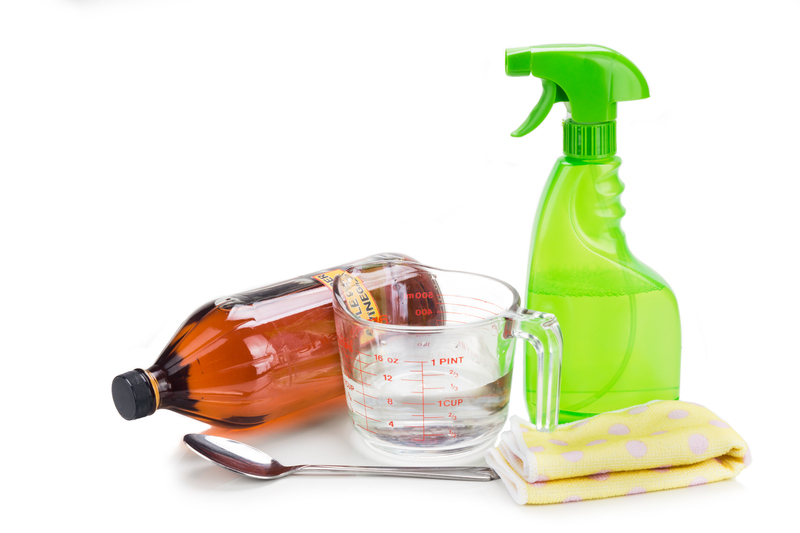Eco-home Cleaning Practices
Posted on 18/09/2024
In today's world, where environmental consciousness is paramount, adopting eco-friendly cleaning practices has become a cornerstone of responsible living. Traditional cleaning products often contain harmful chemicals that can pollute waterways, harm wildlife, and negatively impact indoor air quality. Eco-home cleaning practices offer a sustainable alternative that is not only better for the planet but also safer for your health. This article delves into various aspects of eco-friendly cleaning, offering practical tips and insights to make your home both clean and green.
Understanding the Impact of Conventional Cleaning Products
Conventional cleaning products are designed to be highly effective in removing dirt, grime, and bacteria. However, many of these products contain chemicals such as ammonia, chlorine, and phthalates, which can have detrimental effects on both the environment and human health. When these chemicals are washed down the drain, they can contaminate water supplies, affect aquatic life, and disrupt ecosystems.
Moreover, indoor air quality can be significantly compromised by the volatile organic compounds (VOCs) present in many traditional cleaners. VOCs can cause a range of health issues, including respiratory problems, skin irritation, and even long-term effects such as hormone disruption and cancer. Therefore, transitioning to eco-friendly cleaning solutions is not just an environmental responsibility but also a health-conscious choice.

Benefits of Eco-home Cleaning Practices
Implementing eco-home cleaning practices comes with a myriad of benefits:
- Environmental Protection: Eco-friendly products are biodegradable and free from harmful chemicals, reducing pollution and conserving natural resources.
- Health and Safety: Natural cleaning solutions are generally non-toxic and hypoallergenic, making them safer for both humans and pets.
- Cost-Effective: Many eco-friendly cleaning solutions can be made from inexpensive household ingredients, such as vinegar, baking soda, and lemon juice.
- Improved Indoor Air Quality: By eliminating VOCs and other harmful chemicals, you create a healthier living environment.
Essential Eco-Friendly Cleaning Ingredients
Transitioning to eco-home cleaning practices can be simple and effective by incorporating a few essential natural ingredients:
Vinegar
Vinegar is a powerful disinfectant due to its acetic acid content. It can effectively remove grime, mold, and mildew and is particularly useful for cleaning glass and surfaces.
Baking Soda
Baking soda is a versatile cleaner that can scrub surfaces, deodorize spaces, and even neutralize acidic substances. It works well on sinks, tubs, and stovetops.
Lemon Juice
Lemon juice is a natural bleaching agent and can cut through grease and grime. Its pleasant scent also helps to freshen up spaces.
Essential Oils
Essential oils like tea tree, lavender, and eucalyptus have natural antibacterial and antifungal properties. Adding a few drops to your cleaning solutions can boost their effectiveness and impart a delightful aroma.
DIY Eco-home Cleaning Solutions
Creating your own eco-friendly cleaning solutions at home is both cost-effective and straightforward. Here are some DIY recipes to get you started:
All-Purpose Cleaner
Mix equal parts water and white vinegar in a spray bottle. Add a few drops of your favorite essential oil for fragrance. This solution is ideal for cleaning countertops, sinks, and other surfaces.
Glass Cleaner
Combine one part vinegar, one part water, and a tablespoon of cornstarch in a spray bottle. Shake well before use. This mixture will leave your glass surfaces streak-free and sparkling.
Bathroom Cleaner
Mix a cup of baking soda with a few drops of tea tree oil. Sprinkle the mixture onto surfaces and scrub with a damp cloth. This cleaner is effective against soap scum and mildew.
Floor Cleaner
Add half a cup of white vinegar to a bucket of warm water. For a fresh scent, include a few drops of lemon essential oil. Use this solution to mop tile, wood, or laminate floors.
Adopting Sustainable Cleaning Habits
In addition to using eco-friendly products, incorporating sustainable habits can enhance the effectiveness of your green cleaning routine:
Reduce Water Usage
Use water-saving appliances and be mindful of water usage while cleaning. For instance, avoid letting the tap run continuously when washing dishes or cleaning surfaces.
Opt for Reusable Cleaning Tools
Replace disposable wipes and paper towels with reusable microfiber cloths and mop heads. These products are not only more sustainable but also more effective in lifting dirt and grime.
Recycle and Reuse
Repurpose old T-shirts and towels as cleaning rags. Ensure that containers and packaging from eco-friendly products are recyclable or reusable.
Ventilate Your Home
Proper ventilation can improve indoor air quality by reducing the concentration of indoor pollutants. Open windows regularly and use exhaust fans when needed.

Supporting Eco-friendly Brands
When purchasing cleaning products, consider supporting brands that prioritize sustainability. Look for certifications such as:
- EcoLogo: Indicates that the product meets stringent environmental standards.
- Green Seal: Certifies that the product is environmentally responsible and effective.
- EPA Safer Choice: Recognizes products that are safer for human health and the environment.
By choosing products with these certifications, you contribute to a market demand for sustainable options, encouraging more companies to adopt eco-friendly practices.
Conclusion
Eco-home cleaning practices are a vital step towards sustainable living. By understanding the impact of conventional cleaning products and transitioning to natural alternatives, you can protect the environment and improve your health. Essential ingredients like vinegar, baking soda, and lemon juice offer effective cleaning solutions without the need for harmful chemicals. Additionally, adopting sustainable habits and supporting eco-friendly brands can further enhance your green cleaning routine. Embrace these practices to create a safer, healthier, and more environmentally responsible home.






